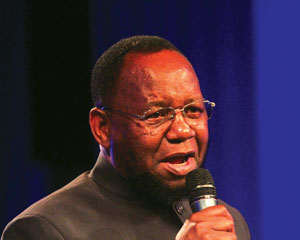
THE Zimbabwe Human Rights Commission (ZHRC) and a cross section of the population have expressed concern at the government proposed $3 Grade 7 examination fees saying the move was not only unconstitutional, but against the majority poor.
BY PAIDAMOYO MUZULU
The comments came in the wake of Primary and Secondary Education deputy minister Paul Mavima’s remarks in Parliament on Wednesday that government was mulling introducing Grade 7 exam fees to maintain the quality of education.
“The commission takes this opportunity to remind the government and the Ministry of Primary and Secondary Education that the proposed fee introduction, if true, contravenes provisions of international human rights instruments that Zimbabwe is party to,” ZHRC said.
“Article 13 (2a) of the International Covenant on Economic, Social and Cultural Rights and Article 28 (1) of the Convention on the Rights of the Child call on State parties to make primary education compulsory and available to all, while secondary education in all its different forms should be made generally available and accessible.”
Former Mbizo MP Settlement Chikwinya said the move would further commercialise education.

“‘O’ Level exam fees have screened some students from acquiring basic education qualifications due to affordability and introducing Grade 7 exam fees would further commercialise education and discriminate attainment of education.”
- Chamisa under fire over US$120K donation
- Mavhunga puts DeMbare into Chibuku quarterfinals
- Pension funds bet on Cabora Bassa oilfields
- Councils defy govt fire tender directive
Keep Reading
Musician Wilbroad Mponda, also known as Willom Tight, said the move was against the principle of free basic education to all. “Education is a right and, therefore, primary education must be free,” Mponda said.
However, other citizens viewed the fees as a panacea to the falling educational system, but were sceptical the profligate government could abuse the funds.
“Granted, the economy is in a bad state, but $1 year surely can’t be too much of a sacrifice towards our children’s education,” Belinda Ndlovu said.
“The only concern I have is if the government will genuinely put this money to good use and improve the education standards considering their legacy of looting.”
Malvern Mkudu said: “This is nothing unexpected. The bankrupt government is looking to take whatever it can from its citizens.” The development comes barely two years after the country adopted a new Constitution which, among other things, protects the right to education.
Section 75 (1) (a) states that “every citizen and permanent resident of Zimbabwe has a right to a basic State-funded education, including adult basic education” while Section 27 (1) (a) further obliges the State to “take all practical measures to promote free and compulsory basic education for children”.











